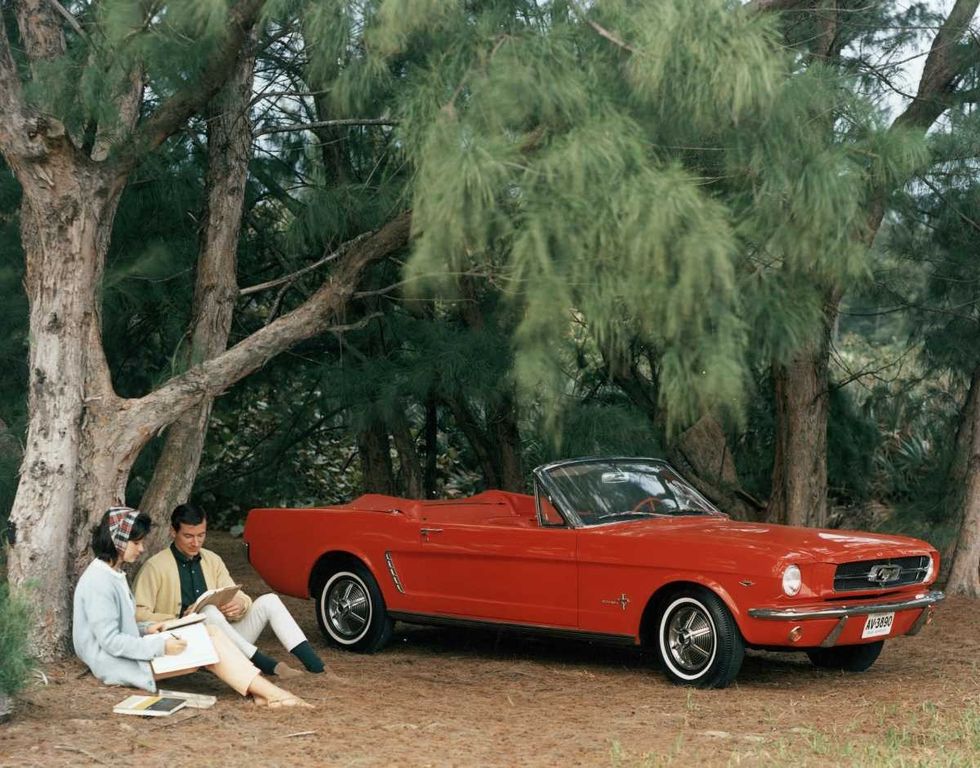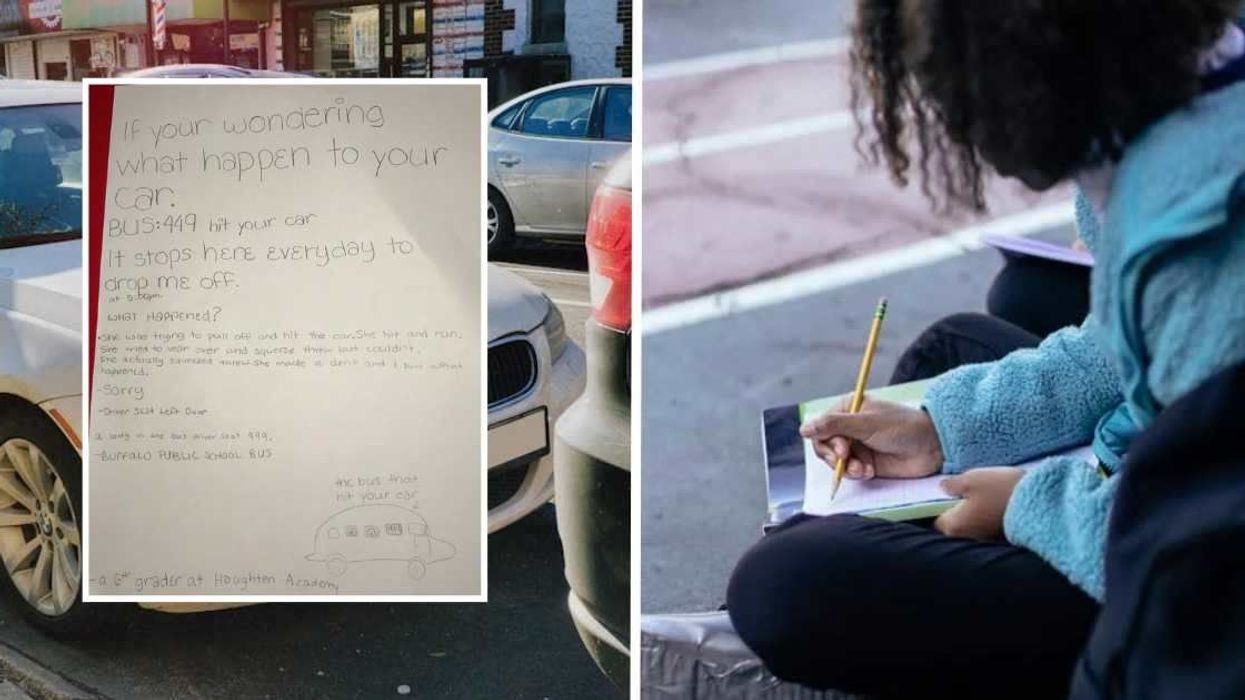Most kids love to explore, question, and investigate things. One sixth-grader displayed her sharp detective skills with a note she left on a car that had been hit by her school bus. When the car owner, Andrew Sipowicz, found this note on his 2012 Red Ford Mustang, his anger took the shape of laughter, reported CNN.

In November 2018, Andrew was a student and college baseball player at Canisius College, Buffalo, New York. One day, as he walked to his car parked near his house, he found a mysterious note taped to his car. Awed by the note, he took to X and shared photos of his dented car and the note. The post got quickly shared over social media and currently has over 995,000 likes and nearly 220,000 comments.

The anonymous note signed as “by the 6th grader at Houghten Academy” read, “If you’re wondering what happened to your car, Bus: 499 hit your car. It stops here every day to drop me off at 5:00 p.m. What happened? She was trying to pull off and hit the car. She hit and run. She tried to veer over and squeeze through, but couldn't. She actually squeezed through. She made a dent and I saw what happened.” The note writer ended the note with an apology, “Sorry.”
At the bottom of the note, the young detective revealed that the bus was a Buffalo Public School bus. She also drew a cute bus doodle, tagging it as “the bus that hit your car” with kids peeking through the bus window. Andrew said that he immensely liked this drawing, adding that he felt his “mood went from angered to more relaxed” after he read the note.

Following up, Andrew called the bus company, “First Student,” and spoke to a representative. The company confirmed in a statement to CNN that the car’s insurance process was in progress. “We will cover the full cost of the repair to his vehicle as well as a loaner while his car is in the shop,” the company officials said, adding that the bus driver in question would be terminated.

Andrew also reached out to a teacher from the Buffalo PS 69 Houghton Academy who immediately recognized the handwriting in the note. Kevin Garcia, vice principal of the school, told CNN affiliate WKBW, that the school would celebrate the student’s “outstanding leadership” by presenting the child with a citizenship award. In an update on X, Andrew wrote that he was grateful to the “sixth grader.” "The student who wrote the letter has been found,” he wrote, “and we're in the process of finding a way to reward her for her actions. Very grateful for what she did.”
Although the sixth grader's name was not revealed to the public, she became a hero among people. Talking about her, @Itadowler said, “A journalist in the making. How adorable.” @katiephang quipped, “Quick! Someone hire this kid to run the United States!”
Many people loved the bus doodle and commented about it. @depazz_ compared the doodle artist with “Picasso.” @bentosmd called it similar to “Perry the Platypus.” @dimaismadduh shared their own similar experience of reading a note left by the witness of a hit-and-run driver.
Later on, Andrew revealed that he was planning to meet the girl, and possibly give her an early Christmas present for her good deed, reported Sinclair Broadcast Group. "I'm looking into going to meet her in person next week and thank her for what she did," he said.
This article originally appeared 3 months ago.






















 What foods would you pick without diet culture telling you what to do?
What foods would you pick without diet culture telling you what to do?  Flexibility can help you adapt to – and enjoy – different food situations.
Flexibility can help you adapt to – and enjoy – different food situations.
 Anxious young woman in the rain.Photo credit
Anxious young woman in the rain.Photo credit  Woman takes notes.Photo credit
Woman takes notes.Photo credit 
 Revenge can feel easier than forgiveness, which often brings sadness or anxiety.
Revenge can feel easier than forgiveness, which often brings sadness or anxiety. 
 In the past two years, two malaria vaccines have become available for babies starting at 5 months of age.
In the past two years, two malaria vaccines have become available for babies starting at 5 months of age. By exploiting vulnerabilities in the malaria parasite’s defense system, researchers hope to develop a treatment that blocks the parasite from entering cells.
By exploiting vulnerabilities in the malaria parasite’s defense system, researchers hope to develop a treatment that blocks the parasite from entering cells. Created with
Created with